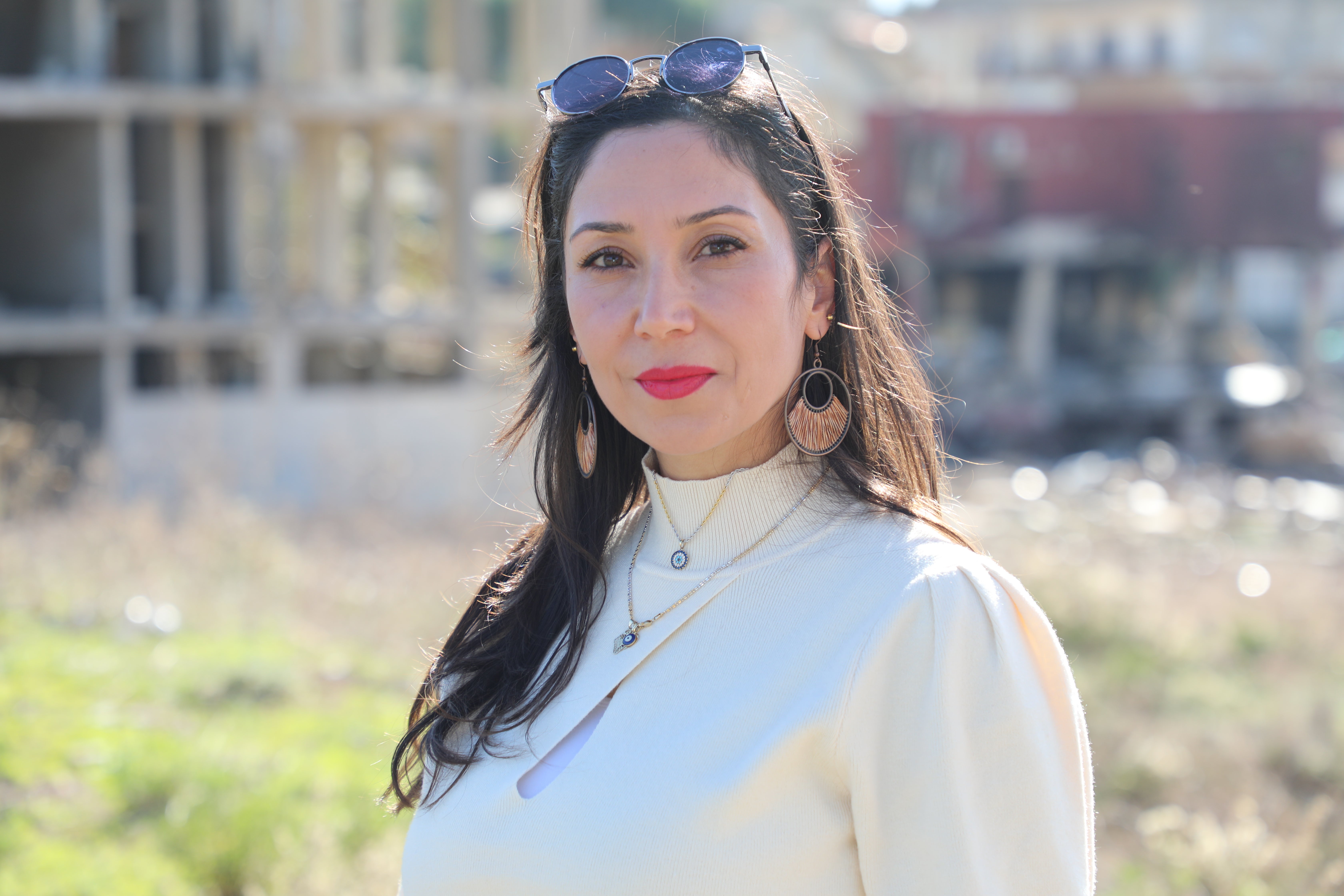In the words of Rana Ghanawi: “I want to seize every moment of my life, inspired by those who lost their dreams and loved ones”
Date:
A few miles from her town, Kfarroman, on 28 September 2024, 42-year-old mother of two Rana Ghanawi nearly lost her children when a fire broke out in a vehicle in front of her following an airstrike that killed everyone inside. Rana is a social worker with a Diploma in Health and Social Supervision and Institutional Management, and a Master’s degree in Child and Adolescent Psychology and Family Mediation who prepared a study on the needs of returnees for UN Women.
“It took us 14 hours to reach Sidon from Kfarroman, and from there we later moved to Akkar. Thousands of displaced people were present, mostly children and women who were forced to flee alone with their kids since many of their husbands refused to leave.
I started helping the displaced. Since I was also displaced, our needs were the same. It didn’t take long before we began to address more than just basic needs like food, drinking water and shelter, as there were other needs for women that were equally important, such as privacy, especially for veiled women, pregnant women and nursing mothers who were present in the nine shelters I visited.

The atmosphere in these shelters was filled with tension and anxiety. The displaced experienced enormous psychological stress that was manifested in a noticeable increase in cases of domestic violence. In one of the shelters I was responsible for, there were two divorces in one week!
The men present were unemployed, far from their homes, families and livelihoods, unable to do anything. Society places heavy tolls on their shoulders, and when they fail to fulfil them, they feel a cumulative pressure that sometimes expresses itself through violence.
My colleagues and I stood by the abused women, providing them with psychological and moral support and consultations related to mental and sexual health. We are still in constant contact with them today.
Sadly, the crisis we went through proved that despite all the progress we have made in women’s rights, there is still much work to be done. There are still women who are unaware of their rights. We must strive to build a new generation of empowered women whom I believe are the ones who respond most swiftly and effectively during crises.
UN Women contacted me from the first day of the ceasefire and asked me to prepare a study on the needs of returnees, through which we were able to secure assistance for more than 311 families.
Overall, along with a group of friends, I was able, with very modest resources, to assist more than a thousand families.
I aspire to implement a project aimed at empowering women in the southern region one day, for them to become like other empowered women ready to face any crisis. In times of peace, we must intensify our efforts to train women on the concept of peace, which begins with children at home and extends to the community as a whole. We must invest in women to nurture a generation that grows in peace.
Certainly, this experience we went through will leave scars in our hearts, souls and minds. I liken the experience of displacement to uprooting a fruitful tree from its environment and replanting it in a strange and distant place, which often leads to its shrinkage.
Throughout the conflict, I was like that tree, far from the south, my home, my belongings and my family. I remember that the first smile I had was a long time after returning home. And when I smiled, I felt how long it had been since I had done so.
I am a lover of life, and after what I have been through, having witnessed death firsthand with my children, my love for life is now very different. I do not want a single day to go by where I am gloomy, scared or anxious. I want to seize every moment of my life, inspired by those who lost their dreams and loved ones.”